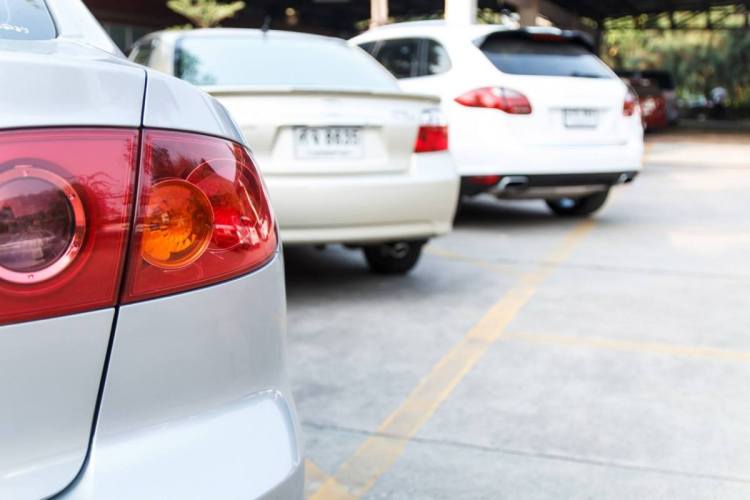Conventional cars drive the bulk of Chicago-based SpotHero‘s business, but the parking inventory and booking startup is setting its sights on a driverless future. Today, it announced that more than 500 of its connected parking garages in Chicago have been adapted to accommodate autonomous cars, trucks, and SUVs.
“Significant strides in both vehicle and parking technologies are creating major opportunities for parking facilities like ours to enhance drivers’ parking experiences,” Jeff Eckerling — senior vice president at SP+, a parking facility management service provider that’s collaborating with SpotHero — said in a statement. “Drivers want to have a seamless parking experience — from reservation to payment to entering and exiting the facility. Whether drivers are parking their cars today or autonomous vehicles take the wheel tomorrow, our collaboration with SpotHero contributes to driving real business and preparing for change.”
SpotHero’s upgraded garages are outfitted with sensors that will allow self-driving car operators to book and pay for parking spaces, including license plate scanners and connected parking meters. On the software side, the HeroConnect software development kit and API will facilitate payments and let vehicles, carmakers, ridesharing services, and cities exchange parking data.
The idea is that Uber, Lyft, Waymo, and the hundreds of other automakers and self-driving car startups will rent spaces from SpotHero as needed.
“Autonomous cars won’t make parking go away,” SpotHero CEO and cofounder Mark Lawrence told VentureBeat in a phone interview.
Researchers forecast that a self-driving car could replace up to 12 regular vehicles and that they’ll require significantly less parking space. But Lawrence intimated that autonomous cars would need a place where they can be recharged and maintained, tasks for which not all conventional garages are equipped.
“Autonomous vehicles aren’t driving around endlessly — they suffer from wear and tear, and they need to be cleaned and charged,” he explained. “[Our garages] are ready for the autonomous future.”
As for car companies looking to repurpose service centers and other existing infrastructure as makeshift storage for self-driving cars, Lawrence said that’s the wrong approach. Garages strategically placed in city centers could help cut down on the roughly 30 percent of traffic caused by cars looking for parking spaces, he said.
“If autonomous vehicles have to travel to the outskirts of the city to reach a car lot, it’s going to create congestion,” Lawrence said. “It’s much better to have the cars parked where people need them.”
SpotHero isn’t the only company attempting to tackle the self-driving parking problem. In July 2017, Bosch and Daimler demonstrated a valet system that autonomously guides a car to an assigned parking spot. (They noted that the system, which uses sensors both throughout the garage and on the vehicle, can be retrofitted to existing vehicles and structures and lead to a 20 percent boost in capacity.) And in March, Jaguar Land Rover and Ford demonstrated Collaborative Parking, a platform-agnostic feature of the UK Autodrive project that uses an online database to find nearby parking spaces.
It’s not just automakers preparing for the coming onslaught of self-driving cars. In California, real estate developer AvalonBay designed a 1,000-car garage for a residential complex in Los Angeles that can be repurposed for other uses as the rise of self-driving cars depresses car ownership.
SpotHero raised $30 million in July 2017 and most recently launched SpotHero for Business, an enterprise-focused service with tools for paying and managing parking expenses. It has 5,000 parking locations in 50 cities in the United States and Canada, and it handles millions of reservations a month.
VentureBeat's mission is to be a digital town square for technical decision-makers to gain knowledge about transformative enterprise technology and transact. Learn More

